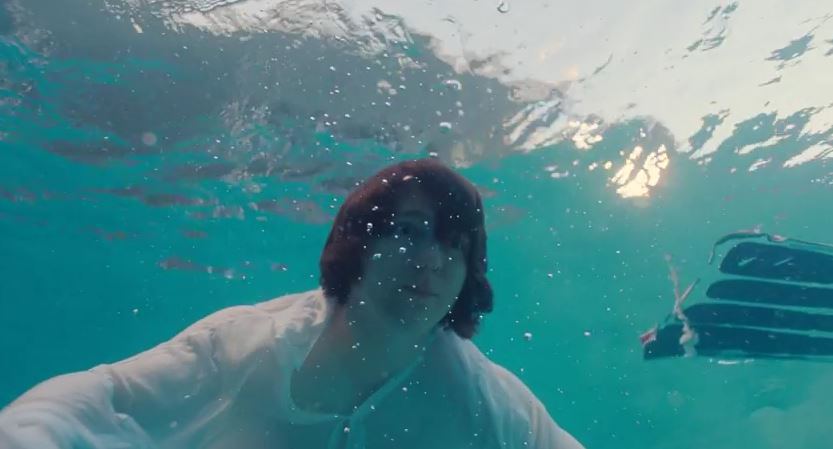
The Beach Boys are one of America’s greatest rock bands. They’re also one of rock’s greatest lies. Their first lie is a relatively simple one: Despite their early music that came to epitomize the laidback, sun-kissed West Coast surfer subculture, the boys—three brothers, a cousin, and a friend—weren’t actually surfers. The second lie is the more complicated one—and the one that director Bill Pohland explores to devastating effect in Love & Mercy: Brian Wilson, the genius behind the group, was neither laidback nor carefree. When he sang about “Good Vibrations” they were in direct contrast to the bad vibrations that haunted him almost every day.
Eschewing the more typical tropes of the musical biopic, Pohland toggles back and forth between two periods in Brian Wilson’s life. We see the younger Wilson (Paul Dano) creating his masterpiece “Pet Sounds” while the rest of the band is off on tour in Japan. (Wilson opted to stay home partly because the need to create was overwhelming to him and partly because he had been experiencing panic attacks on the road.) Then we see Wilson as a middle-aged man (John Cusack) in the 1980s—now broken, drug-addled, and under the thumb of an abusive, megalomaniacal doctor named Eugene Landy (Paul Giamatti)—just as he begins a tentative romance with ex model and Cadillac salesperson Melinda Ledbetter (Elizabeth Banks).
Dano is fully committed as the younger Wilson, depicting both his genius and his encroaching mental illness with equal conviction. At times, in the studio, Wilson is the master of his domain, hopping from one musician to the next, getting the cellos to play staccato just so, adding layer upon layer of sound as the music seems to pour out of him. We also see him slowly begin to lose it—as the voices in his head grow louder and his paranoia takes root (he thinks Phil Spector has his house bugged; which, considering what we now know about Phil Spector perhaps wasn’t so crazy). “I think I’m losing my mind,” he finally admits to his brother, scaring them both.
Cusack does well in his scenes, too, although he’s not quite as capable of disappearing into a character the way Dano does. This is partly because Cusack has a few familiar actor’s tics he just can’t shake (a particular way he scrunches his face, for example) and partly because Cusack himself is such an icon you just keep thinking, “Huh, there’s John Cusack playing Brian Wilson.” No mind, the 1980s section belongs to Banks, who is brilliant, particularly in moments where she has to interact with Landy—in one scene, barely concealing her disdain for him as they politely converse; in another, staring him down, scared but determined, a model of female resolve.
If I have one objection to the film it’s this: Its villains are too villainous. I have no doubt that Landy was a monster—and Wilson wasn’t the first celebrity to be under the thumb of a pill-pushing quack (Michael Jackson, of course, comes to mind.) But the film nearly depicts him as a literal monster, emerging, horror-movie style, whenever we least want to see him. Likewise, Wilson’s father who was, in fact, abusive, is given the full Daddy Dearest treatment here—“your music will be forgotten in five years,” he casually tells Brian, his psychological warfare perhaps worse than the childhood beatings that left his son nearly deaf in one ear. A little restraint might’ve gone a long way in making these scenes even more effective.
Nonetheless, Love & Mercy is one of the most convincing depictions of the creative process and the effects of mental illness I’ve seen in a long time. I’ll never hear The Beach Boys’ music the same way again. Turns out, the truth was always there, if you just looked closely enough.
